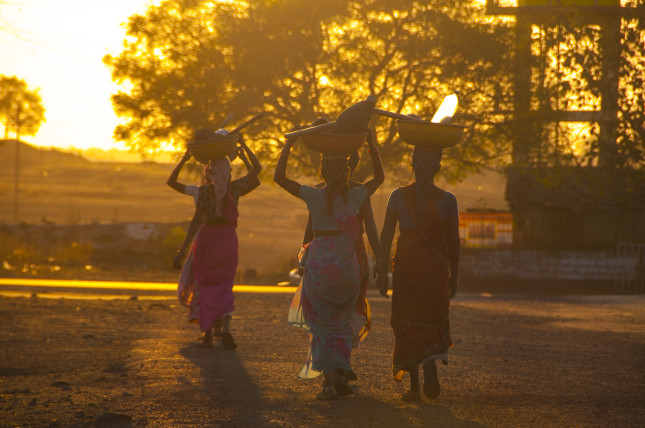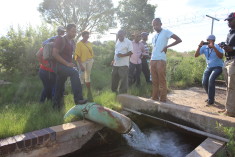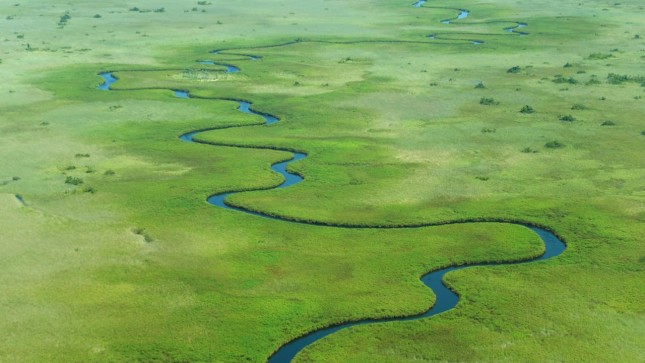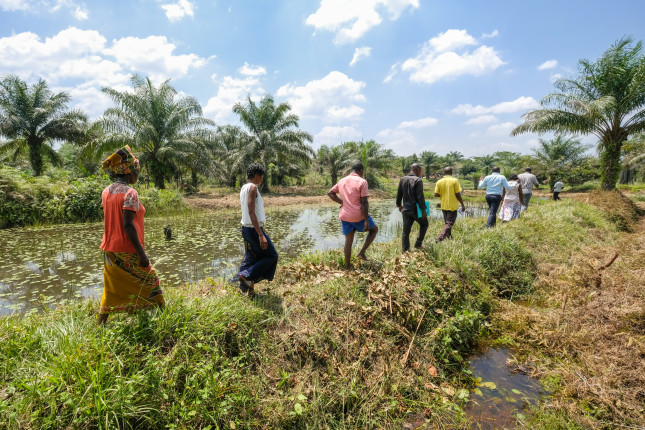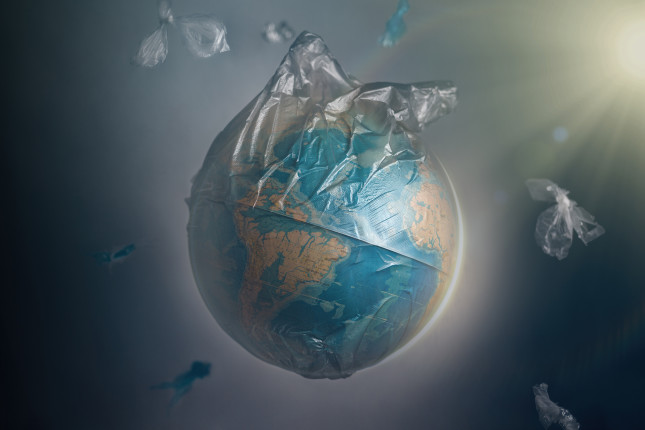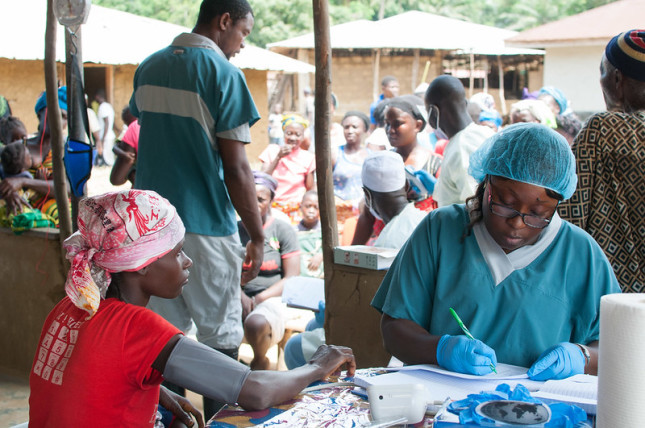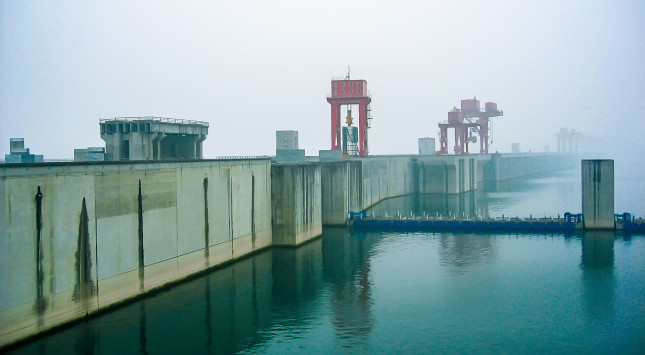-
At the Intersection of Climate Change and Environmental and Reproductive Justice
›“Reproductive justice is the right to reproductive health care, and the right to have children or not, the right to the healthiest possible pregnancy and birth, and the right to raise children in a safe and healthy environment. These rights will be challenged by climate change, including increasing temperatures,” said Linda Goler Blount, President and CEO of the Black Women’s Health Imperative, at a recent webinar on the intersections of environmental and reproductive justice on maternal health, climate change, and birth outcomes. The webinar was held on Juneteenth, the holiday commemorating the end of slavery in the United States, and many panelists’ remarks amplified the significance of the date. “Make this Juneteenth another beginning. One where we commemorate the end of climate injustice for Black and Brown people who bring life into this world,” said Blount.
-
Using Big Data Analytics for Transboundary Water Management
›Guest Contributor // Water Security for a Resilient World // July 28, 2020 // By Clara Bocchino & Knowles AdkissonSouthern Africa has experienced drought-flood cycles for the past decade that strain the ability of any country to properly manage water resources. This dynamic is exacerbated by human drivers such as the heavy reliance of sectors such as mining and agriculture on groundwater and surface water, as well as subsistence agriculture in rural areas along rivers. These factors have progressively depleted natural freshwater systems and contributed to an accumulation of sediment in river systems. In a region where two or more countries share many of the groundwater and surface resources, water security cuts across the socioeconomic divide and is both a rural and urban issue. For example, the City of Cape Town had to heavily ration all water uses in 2017 and 2018, as its dams were drying up.
New technology, however, brings new opportunities for improved water governance. In Southern Africa, university researchers and government agencies are joining with international development groups and the private sector to explore how big data analytics can improve the management of aquifers that are shared by two or more countries.
-
USAID’s New Center for Water Security Signals Progress, But More is Needed
›
As the COVID-19 crisis grew this spring, the U.S. Agency for International Development (USAID) revamped its Water Office, renamed it as the Center for Water Security, Sanitation, and Hygiene, and added it to the Bureau for Resilience and Food Security, home to the Feed the Future Initiative.
Placing the Center for Water Security in the Bureau for Resilience and Food Security was a strategic shift. With 70 percent of freshwater use designated for agriculture, this move elevates water as an integral component of resilience and food security. Referencing water security in the Center’s name also highlights the need for water supplies to be managed sustainably and the role that water plays in resilience and peace.
-
Better Governance Needed to Overcome Africa’s Resource Curse
›
“Africa, as you all know, is one of the most resource-rich regions of the world,” said Cyril Obi, Program Director of the African Peacebuilding Network at the Social Science Research Council. “But many observers have noted that in spite of all this natural wealth, Africa seems to have quite a substantial proportion of its population living under poverty.” He spoke at a recent Wilson Center Africa Program event that examined the relationship between natural resources, sustainable development, and peace in Africa. How do you explain a continent rich with natural resources where so many people live in poverty, he asked.
-
Seeking Global Action on Plastic
›
It’s your turn, you place a paper with a word on your forehead and people start yelling clues for you to guess: “Ketchup bottle! Your glasses! Glitter! Legos! Tea bags! But then the clues take a turn: “Gets stuck in trees! Floats in the ocean! Lies in gutters!” Realization hits and you yell “Plastic!” Plastic, a global riddle that inundates our daily lives yet also is the source of a growing waste and pollution crisis. Single-use plastic packaging and containers generate 300 million tons of plastic waste each year and between 4.8 to 12.7 million tons of it leaks into the ocean annually, from a variety of land-based sources like stormwater runoff, construction sites, and poor waste management systems. Moreover, nearly invisible pollution from plastic-derived chemicals and microplastics are also on the rise in the oceans. These plastics end up in the guts of birds, oysters, and fish, and entangle sealife, posing a threat to the health of ocean ecosystems, food security, and the planet.
-
Structural Racism and its Impact on Black Maternal Health
›
“The past months have been profoundly difficult for our nation, and for Black communities in particular,” said Representative Lauren Underwood (D-IL-14) at a recent March of Dimes event on the impact of structural racism on maternal health. COVID-19 has highlighted health outcome inequity caused by race and racism. Though Black people constitute 13 percent of the U.S. population, the CDC estimates they represent over 30 percent of COVID-19 cases.
-
Strengthening Fragile States: Why It Makes Sense to Invest in Global Health
›
Fragile states, where 1.8 billion people live, continue to be where one is most likely to find extreme poverty, violent extremism, and those most vulnerable to natural disasters and pandemics, said Nancy Lindborg, President and CEO of United States Institute of Peace, at a recent Truman Center event on the ties between national security, global health, and development. Those governments that do not have the capacity to meet the needs of their people, she said, also tend to be the ones that cannot manage external shocks.
-
China’s Post-Pandemic Water Woes
›
Few places have suffered more from the COVID-19 pandemic than southern China, the region where the novel coronavirus was first detected in the city of Wuhan. But it turned out that the pandemic is not the only calamity to befall south China this year. The region has been inundated by heavy rainfall since late May, creating a risk of catastrophic flooding. While southern China typically sees heavy rainfall in the summer months, state media reported that this year’s precipitation has been roughly 20 percent higher than normal. Other outlets report that flooding has affected over 30 million people across dozens of provinces and resulted in over 120 deaths.
 A Publication of the Stimson Center.
A Publication of the Stimson Center.

